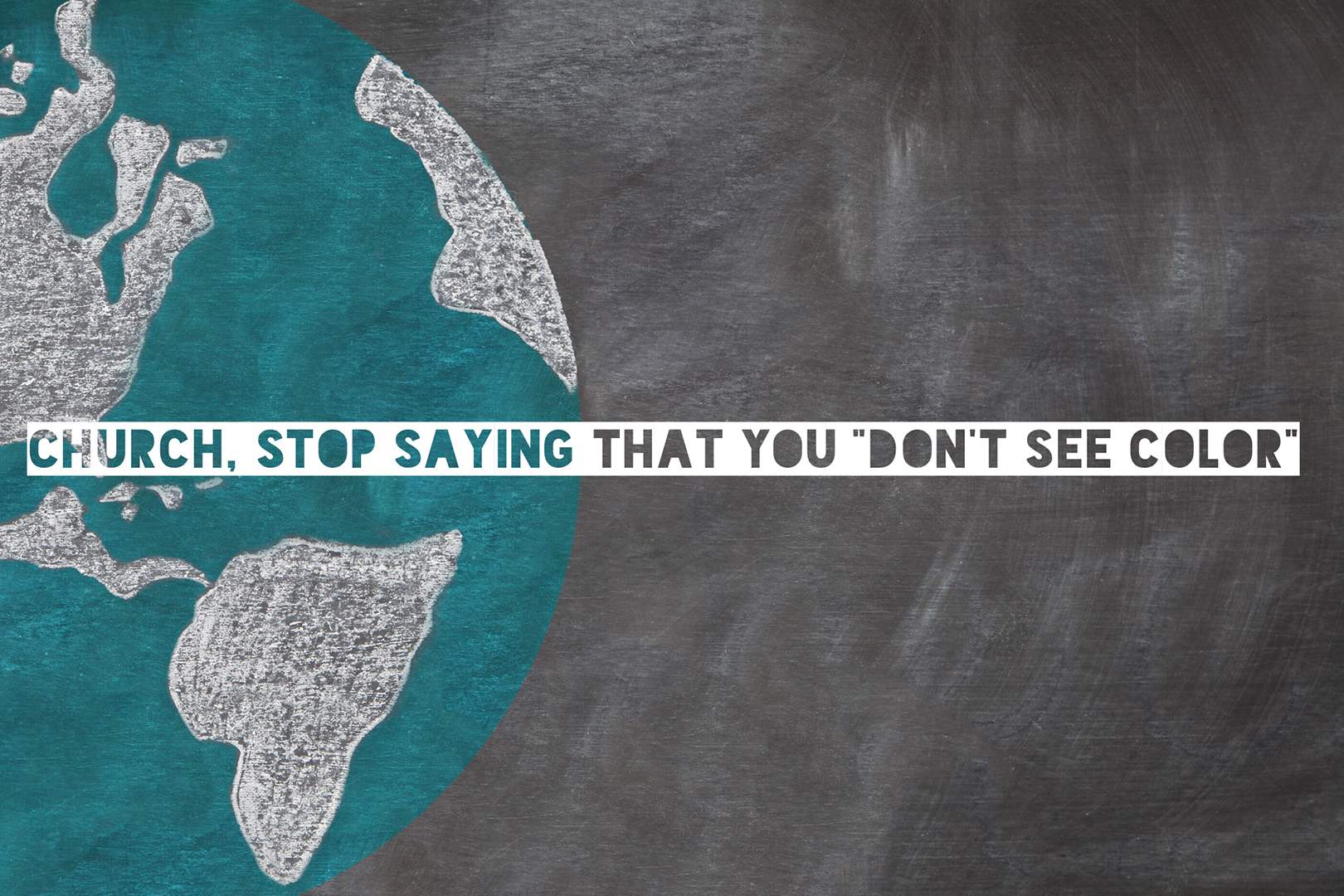
Church, Stop Saying that You “Don’t See Color”
I’ve recently heard a phrase within the church and it goes something like this: “I don’t see color, I only see souls in need of a Savior.” Maybe you’ve said it before, or maybe you’ve heard other people say it. Good, Jesus-loving Christians have held this mantra for a long time because they believe that this attitude will foster unity within the body of Christ. “We’re all the same!” they say, “We all need Jesus!”
While I understand the good intentions behind these sentiments, I would argue that this perspective does more harm than good for the church for one simple reason: we are NOT all the same. We DO have different ethnicities. We all need Jesus, yes, but the church is not a single, broad brush stroke on a blank canvas. It’s a beautiful mosaic of ethnicities and socioeconomic backgrounds. Saying that you “don’t see color” is a misguided response to the prejudice that so clearly divides the body of Christ.
Some may affirm this “I don’t see color” stance by citing the words of Paul to the Galatians, “There is neither Jew nor Greek, there is neither slave nor free, there is no male and female, for you are all one in Christ Jesus” (3:28, emphasis added). But is Paul really declaring that God’s children no longer have an ethnicity? If he is, then he’s also saying that we no longer have any genders. Paul is really showing us that the true unifying reality of all Christians is that we are one in Christ. He’s not telling us to abandon our ethnicity or our jobs or our genders. He’s telling us to find our ultimate identity in Christ. Our gender and ethnicity are important, but they are not what ultimately defines our identity
Why Is This Perspective Harmful?
When we say “I don’t see color” it prevents us from confessing and addressing existing prejudices or assumptions about different ethnicities, and therefore stifles unity within the church.
I’d like to share a quick personal story that illustrates how deep rooted our prejudices can be. A few years back, I had the pleasure of attending a pastor’s conference at a prominent church in Southern California. They gifted all attendees with a giant bag full of books and offered a service to ship them back home, so long as you lived in the lower 48 states. I stood in line with a group of other pastors from my church and when it was my turn, the volunteer, a sweet, middle-aged white woman, took one look at me, glanced down at my name tag (which listed my hometown of Lynnwood, WA) and politely said, “Ok, just making sure we’re shipping within the United States…” Stunned, I gently responded, “Yes, I’m from Washington State.” I handed her my books, paid for shipping, and went on with my day.
I was born in California. I played high school football. Cheeseburgers are a main staple in my diet. I own every Led Zeppelin album, plus a few concert DVDs. I’m as American as a bald eagle wearing a red, white, and blue “NRA” tank top. So how could this servant-hearted, Christian woman glance at me and immediately think I was from another country? Well, I also happen to be Filipino-American. She saw my brown skin and almond shaped eyes, and assumed I couldn’t speak English and I was from another country.
Clearly, this woman DID see color because if she didn’t, she probably would have just asked me where I’m shipping my books to and not made an assumption about me based on the color of my skin. She probably had no intention of offending me, and she probably didn’t even realize that she made a terrible mistake until I spoke in clear, concise English. But there are clearly some prejudices that need to be addressed. Accepting the fact that people do have different ethnicities will begin the process of unearthing underlying biases we may have.
Thankfully, the Word of God offers a clear picture of the church that corrects this attitude and ultimately helps cultivate unity within the Church. The Bible paints a beautiful image of God’s people as an innumerable magnitude from all corners of the earth. John, shares a vision of a massive amount of people gathered together worshiping Jesus upon His return, and what he finds notable about them is their ethnic diversity. He says that they come “from every nation, from all tribes and peoples and languages…and crying out with a loud voice, ‘Salvation belongs to our God who sits on the throne, and to the Lamb!’ (Rev. 7:9-10). This certainly is not a denial of their ethnicity, but a remarkable picture of the diverse nature of the church. What’s more is that they were worshiping Jesus in a singular voice even though they’re from different nations! Hallelujah! We must recognize that the church is one people of many nations and ethnicities who worship the same Jesus. Once we recognize this, we can live in unity as a church.
So, where do we go from here? Let me offer one practical way you can promote unity with brothers and sisters from different ethnic groups: ask good questions. Ask “What ethnicity are you?” (NOT “What are you?”). Ask about our culture. Ask about the foods we grew up eating. Ask about the religious climate of Korea or the Philippines or Ghana whatever their home country is. Ask about our customs or our holidays. Asking thoughtful questions will show your brother or sister that you’re actually interested in how their ethnicity has shaped their lives, and will, at the same time, help you gain understanding of other cultures.
Redeemer Church, Jesus prayed for the unity of His church (Jn. 17:23), and abolishing “I don’t see color” will allow us to seek the kind of unity our Savior desires for us.
